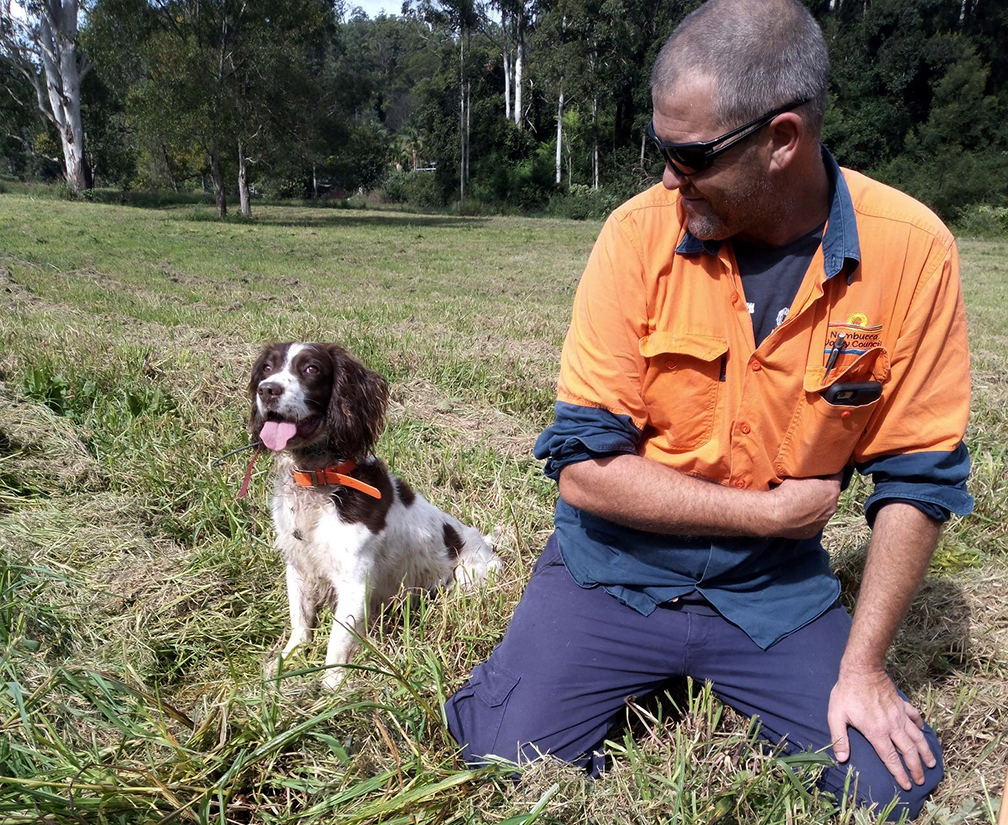
Dog seeks parthenium weed on the North Coast
2 Jun 2021

For the first time, NSW Department of Primary Industries (DPI) has enlisted a detector dog to uncover parthenium weed in Palmvale, near Murwillumbah, where the weed is suspected to be present but difficult for biosecurity staff to find.
NSW DPI State Priority Weeds Coordinator, Charles Mifsud, said Connor, the springer spaniel, last month successfully sniffed out parthenium weed seedlings at Blandford in the Upper Hunter.
“Parthenium can still grow in the warmer parts of the state through autumn into winter and it’s vitally import we find these plants before they flourish and set seed in summer,” Mr Mifsud said.
“Working with Rous County Council we aim to detect and manage any plants which have emerged following treatment of parthenium weed at the site, which was first found by a diligent landholder on 29 September last year.
“It is one of seven infestations linked to contaminated organic whole grain chicken feed and mash.
‘We urge everyone, particularly those who have fed poultry with purchased organic grain and mash, to be on the lookout for parthenium.”
Please call the NSW DPI Biosecurity Helpline 1800 680 244 or your local council, who will be able to identify any suspected sightings of the weed and provide assistance in its management.
Strategic surveillance, investigations and tracing, vigilance, increased awareness and calls from the public have led to the detection of 30 parthenium weed infestations across NSW since 1 April 2020, as government bodies, industries, farmers and the community work to eradicate the weed.
NSW has benefited from the program to keep the state parthenium-free since 1982 and NSW DPI continues to coordinate statewide surveillance of known high-risk areas in collaboration with local councils, weed control authorities and Local Land Services regional weed coordinators.
Parthenium weed, Parthenium hysterophorus, spreads rapidly, is dangerous to grazing animals and reduces crop and land values. Contact with the plant or pollen can cause serious allergic reactions in people.
Information about parthenium weed is available from the NSW DPI website.
Hi-res images available on request.
Media contact: (02) 6391 3686

